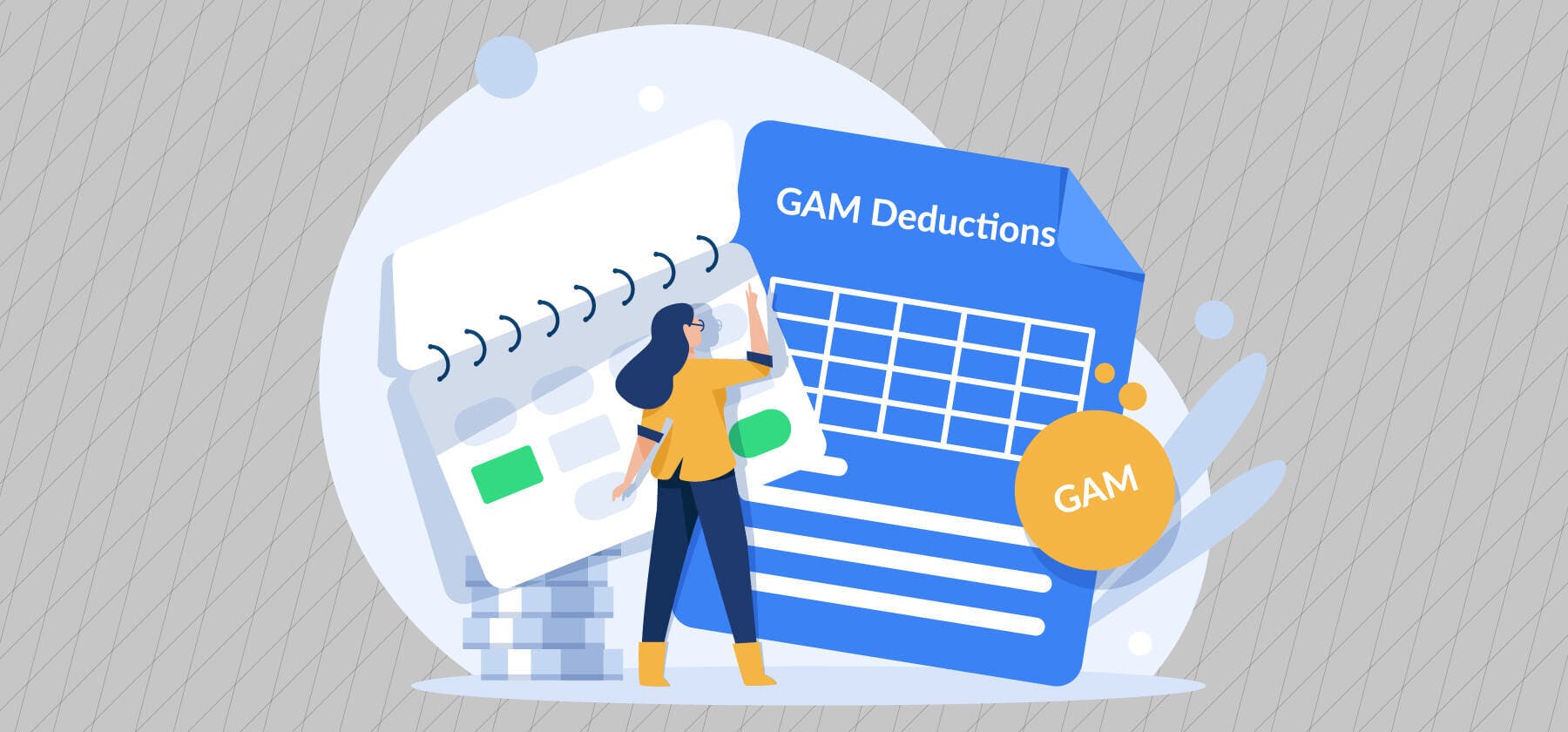In the world of app publishing, there is a constant interplay between revenue generation and deduction. Google is a significant player in this exchange and decides how and when deductions happen based on various phenomena.
This article will dissect the reasons behind Google Ad Manager (GAM) deductions. We will unravel the specifics of each phenomenon like invalid traffic and policy breaches. Additionally, we will shed light on this often misunderstood aspect of programmatic advertising.
Let’s first understand what Google Ad Manager deductions mean.
What are Google Ad Manager deductions
Google Ad Manager deductions refer to adjustments made to publishers' Google ad payments. They occur for various reasons and impact publishers' final revenue from displaying ads on their apps. The deductions from earnings which stem from multiple sources, will be discussed in this article later.
Importance of understanding deductions from earnings
Publishers must understand Google Ad Manager deductions to understand the nuances of their Google ad payment and plan better. Some reasons why publishers must have in-depth knowledge about deductions are as follows.
- Compliance and sustainability: Knowledge of deduction from earnings ensures that publishers adhere to Google publisher policies. In doing so, publishers can proactively avoid policy violations and sustain long-term partnerships with Google.
- Risk avoidance or mitigation: Publishers who understand deductions can mitigate risks effortlessly about invalid traffic or policy violations. This can, in turn, reduce the chances of revenue loss.
- Performance optimization: Google Ad Manager deductions can be an effective way to gauge ad performance. It can help publishers identify trends or pitfalls and take corrective actions.
- Maintaining trust: Consistent or huge deductions from earnings can cause distrust between publishers, ad networks, and Google. Thus, understanding why Google Ad Manager deductions happen will help maintain transparency and foster healthier partnerships.
Why Do Google Ad Payment Deductions Happen
Google can hold back payments from publishers due to multiple reasons. Let’s explore them in-depth.
-
Invalid traffic
Invalid traffic occurs in the form of invalid clicks, and impressions, generated by bots or click farms. These invalid activities can skew the payment system and allow malicious players to take advantage. Google can scrutinize these activities and adjust reported revenue when it suspects invalid traffic. These adjustments are vital to ensure advertisers pay for genuine interactions and preserve the integrity of the advertising ecosystem.
-
Accuracy adjustments
Google ad payment can appear higher than usual due to overreported impressions or clicks. Google Ad Manager deductions will make prompt adjustments to counter this issue. This deduction from earnings ensures accurate reporting and that advertisers pay for valid interactions.
-
Clawback scenarios
In certain scenarios, deductions from earnings can exceed the owed amounts. Google Ad Manager deductions can happen for payments that were made previously, leading to negative balances. Further, Google credits advertisers for invalid traffic accrued for 60 days before the date of their invoice. Once Google investigates the same, it takes 30 days or more for the deductions from earnings to be reflected in the account. This can create a clawback scenario, requiring publishers to encounter negative balances in their subsequent payment cycles.
-
Late corrections
In some scenarios, there could be a delayed identification of invalid activity leading to a deduction from earnings occurring late. Google Ad Manager deductions could occur throughout the month or between month-end and payment issuance. This delay will impact publishers as they can unexpectedly affect the revenue.
-
Risk allocation
Sometimes, payment terms between publishers and their partners can influence deduction. Slower payment terms can cause more deductions from earnings and impact the publishers' cash flow. However, faster payment terms shift the deduction risk to partners. This causes publishers to receive payments more promptly but they can face Google Ad Manager deductions if issues arise.
Why are payments held up
While discussing deductions from earnings, it is also crucial to understand payment withholding. Google can withhold payments from publishers due to some common reasons, which are as follows.
-
Tax information submission
Google requires specific tax information based on the country of the publisher's payment address for Adsense payments or payments via MA accounts. Failure to submit this information can result in a payment hold.
-
Under review for invalid activity
All accounts are monitored by Google for SPAM/invalid activity so if a publisher's account is flagged for suspicious activity, payments may be temporarily placed on hold. Policy violations like invalid traffic, plagiarized content, and more, are reasons for Google to hold payments and conduct investigations. The hold will be automatically removed at the end of the investigation if the publishers' activities are valid.
What role do ad networks play in deductions from earnings
Ad networks play the role of intermediaries between publishers and advertisers, facilitating the exchange between demand and supply. However, despite their crucial role, ad networks do not play an active role in Google Ad Manager deductions as the deductions stem from Google's policies.
Here is how ad networks fit into the equation:
-
Google Ad Manager integration
Ad networks that are usually integrated with GAM enable publishers to access a broader range of advertisers and optimize their revenue streams.
-
Ad inventory management
Ad networks help publishers manage ad inventory. They can connect publishers with an array of advertisers and help optimize ad placements and boost revenue.
-
Quality check
Ad networks implement their own set of policies to ensure that the ads are competent and compliant with industry standards. They may have many screening processes to identify and detect fraudulent or non-policy-compliant ads from being displayed. Ad networks might implement measures to filter out suspicious traffic or activity before it reaches the publisher's inventory.
-
Reporting discrepancies
Ad networks generate reports for publishers detailing ad performance, impressions, clicks, and revenue earned. Discrepancies in these reports, such as overreported revenue, might prompt publishers to investigate further.
Thus, we can say that ad networks play an important role in ad distribution and quality control. However, Google Ad Manager deductions primarily result from Google's policies and detection mechanisms. Ad networks adhere to these policies as part of their partnership with Google to maintain a trusted ad ecosystem.
In Conclusion
Navigating the landscape of ad revenue within Google's ecosystem calls for an in-depth understanding of Google Ad Manager deductions, and policies.
While ad networks play a crucial role here, Google's policies predominantly govern revenue deductions from earnings. By embracing a collaborative approach between publishers and ad networks while navigating Google's policies, publishers can effectively mitigate Google Ad Manager deductions, ensuring a more stable and rewarding advertising revenue stream.
The only ad platform built for developers by developers.
Contact us now for a product that fits your needs! It’s quick, simple and easy.



